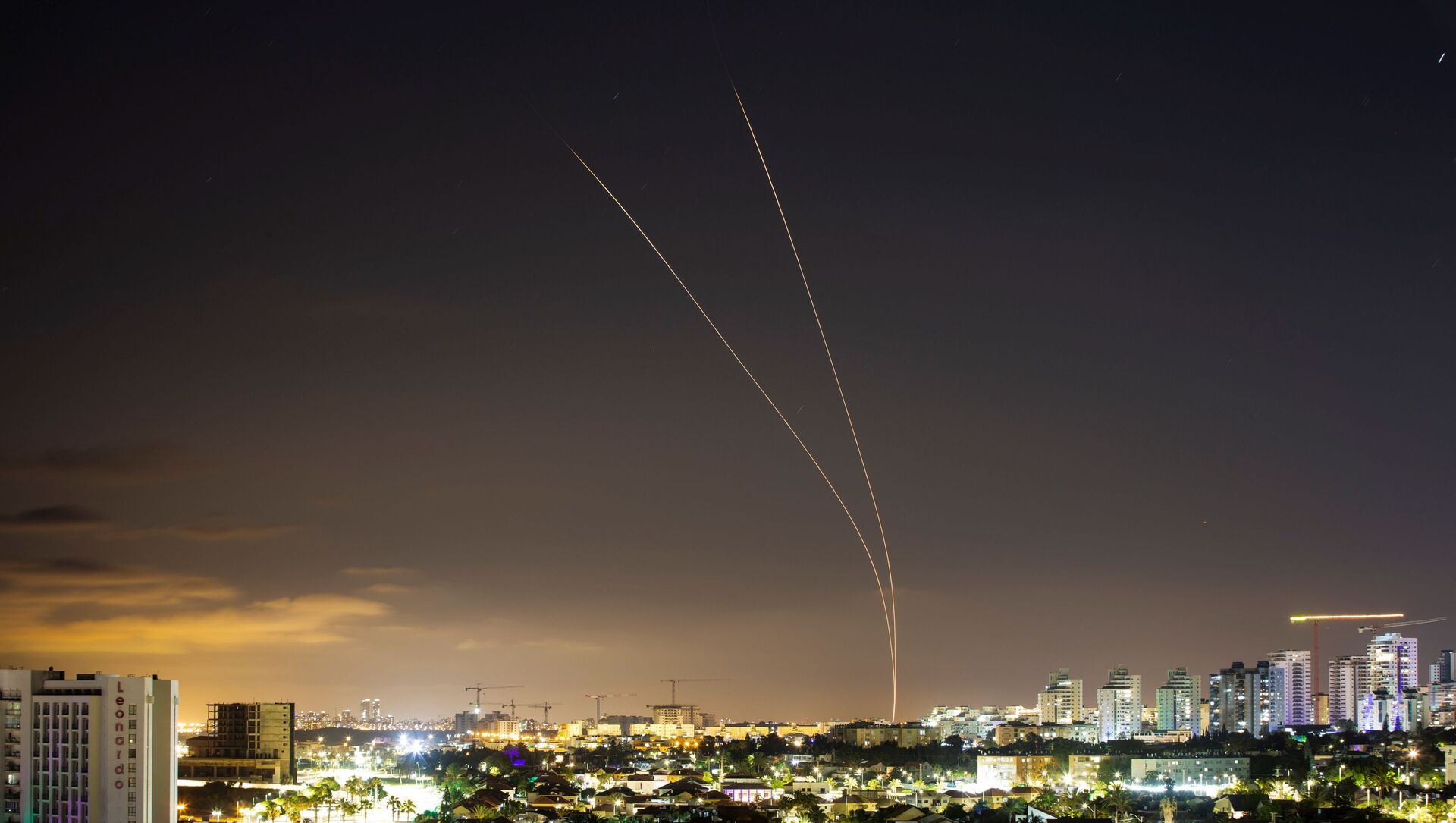Israel continues its Guardian of the Walls operation in the Gaza Strip, where at least 188 Palestinians have lost their lives and hundreds of others have been wounded.
The eight-day long confrontation has also devastated the infrastructure of Hamas, an Islamic group that controls the Strip, and dealt a severe blow to its leadership, targeting their assets and eliminating some of their major players.
Fighting from Afar
Meanwhile, the chief of Hamas' politburo Ismail Haniyeh has leant his support to Gaza from afar.
The Hamas chief has attended a rally in support of the Palestinians in their struggle against Israel. He is located these days in the capital of Qatar, where he found refuge following an Egyptian decision not to let him back into the Strip after he attended the funeral of Qasem Suleimani, a top Iranian commander killed by an American strike in January 2020.
In a festival that was attended by some 10,000 people of different nationalities, Haniyeh vowed to liberate "the entire Palestine" from the Israeli presence and promised to fight until Israel "lifted its hands" from Jerusalem and returned the Al Aqsa mosque, which is considered the third most holy site in Islam.
Haniyeh's speech didn't surprise Dr. Anat Berko, a renowned Israeli criminologist and an expert on terror groups. As someone familiar with the ideology of Hamas, having interviewed dozens of its wanna-be suicide bombers in Israeli jails, she says she is used to the venom spewed by such extremist groups.
But she says that the fact that Qatar was providing a stage to the Hamas politburo chief at a time of confrontation that has claimed the lives of ten Israelis is "disturbing".
That disturbance stems from the fact that in January, Saudi Arabia, the United Arab Emirates, Egypt and Bahrain announced that the'd decided to lift their boycott of Qatar, which was imposed three years earlier, reportedly in response to Doha's support for Iran, the Gulf states' main regional foe, and following allegations that the gas-rich state sponsored terrorist organisations like the Muslim Brotherhood and its offshoot Hamas.
The reconciliation aimed at putting an end to Doha's backing of such extremist groups, but several months after the agreement was signed, Qatar showed that it had no intention of backtracking from its original policy.
"Qatar is supportive of the Muslim Brothers because they adhere to the same ideology," explained Berko.
"They are also supportive of Iran that tries to export its revolution to other parts of the world. But that doesn't stop them from housing American bases. They have double standards and they act like a double agent. Hence, Israel should be careful when dealing with them."
Israel Should Be Wary of Qatar's Role
The problem is that Israel doesn't see it this way. The Qatari money that has been flowing into the coastal enclave since 2012 has played a pivotal role in making sure that quiet has been maintained on the Israel-Gaza border. It has also deflected criticism of the Jewish state, that has often been accused of imposing a blockade on Gaza and of not letting any humanitarian aid in.
According to reports, from 2012 until 2018, Doha transferred $1.1 billion to the Hamas authorities. In 2019, it pledged $200 million to the Palestinians in the Strip.
However, while that money bought some quiet, Berko warns that this "short-term vision" of the Israeli leadership might eventually backfire.
"Of course, it is convenient for Israel to accept that money from Qatar. It pays for the immediate needs of the Gaza population but we also know that not all of that money goes to the ordinary people. Some of it is channelled to Hamas and its military needs."
Although Doha has never formally acknowledged that its money was used for military purposes, Israeli experts have long warned that at least part of it went into the construction of tunnels, the purchase of weapons, the training of troops and the funding of Hamas officials.
This policy, says Berko, won't change any time soon. And this is the reason why she thinks Israel shouldn't turn a blind eye to what's happening in Doha. Nor should it develop illusions that Qatar will one day normalise its relations with the Jewish state.
"We did have some connections with Qatar in the past," she said referring to the small trade office that Israel had in Doha that was shut down in 2009 following Israel's operation in the Gaza Strip.
"But I doubt those ties will ever ripen into normalisation pacts like the one we have with the UAE and Bahrain. This won't happen primarily because of Iran but also because of Qatar's ideology, that we shouldn't ignore."





